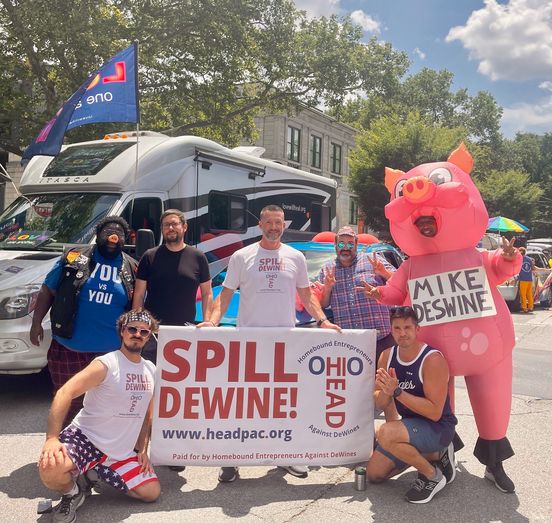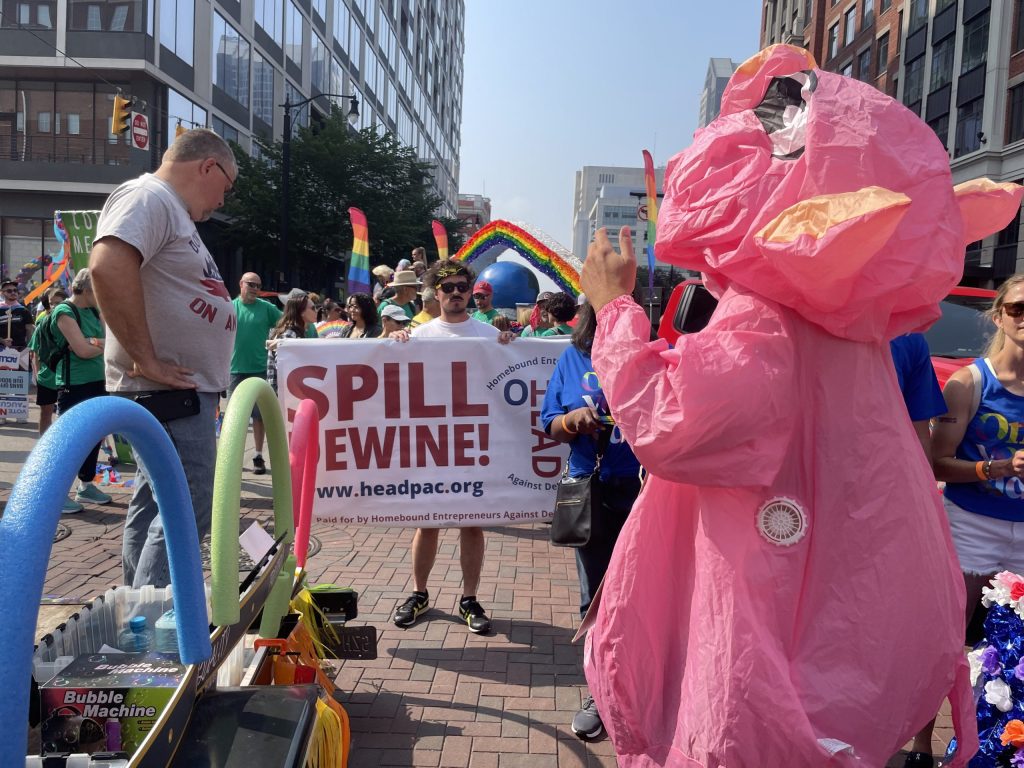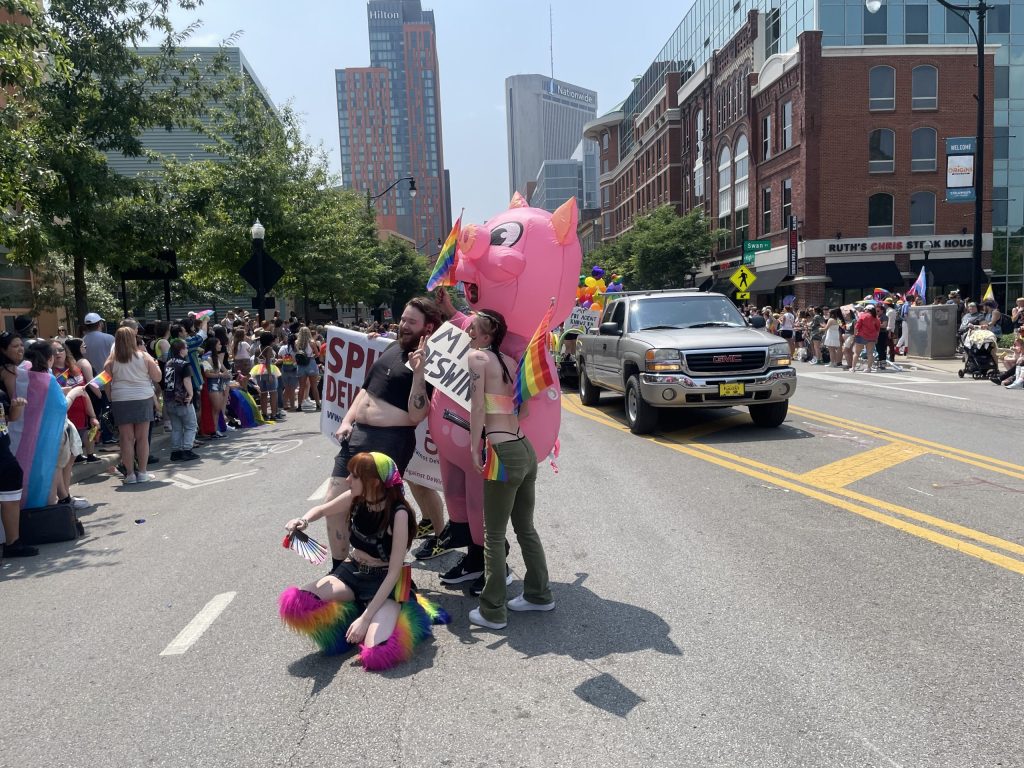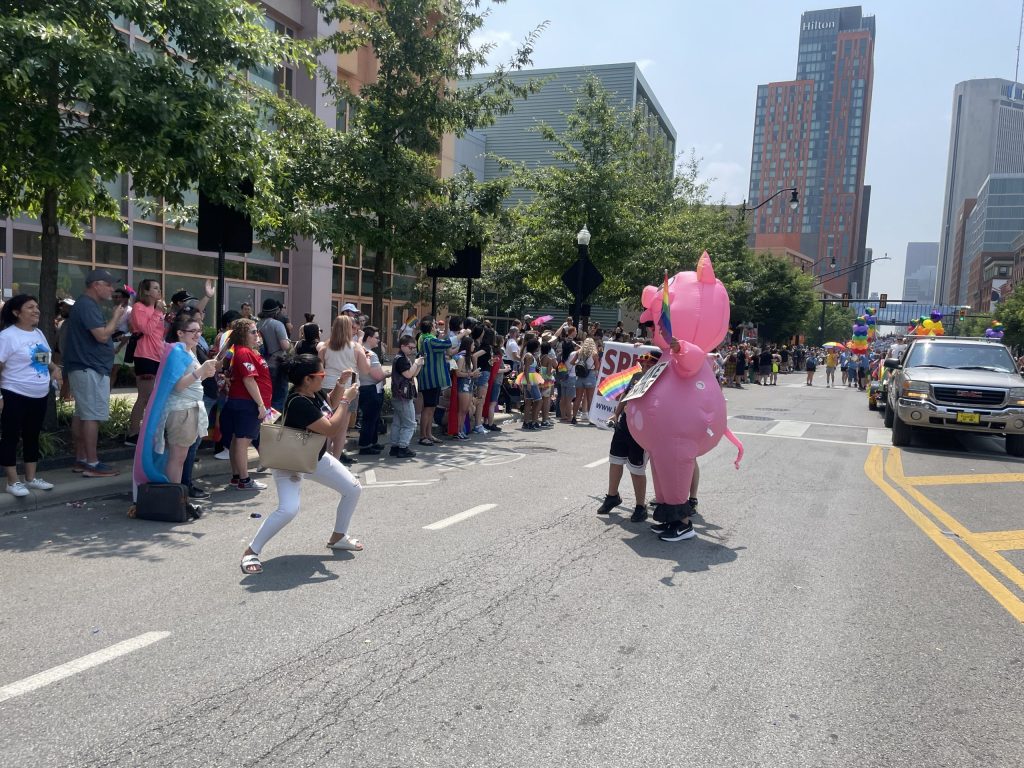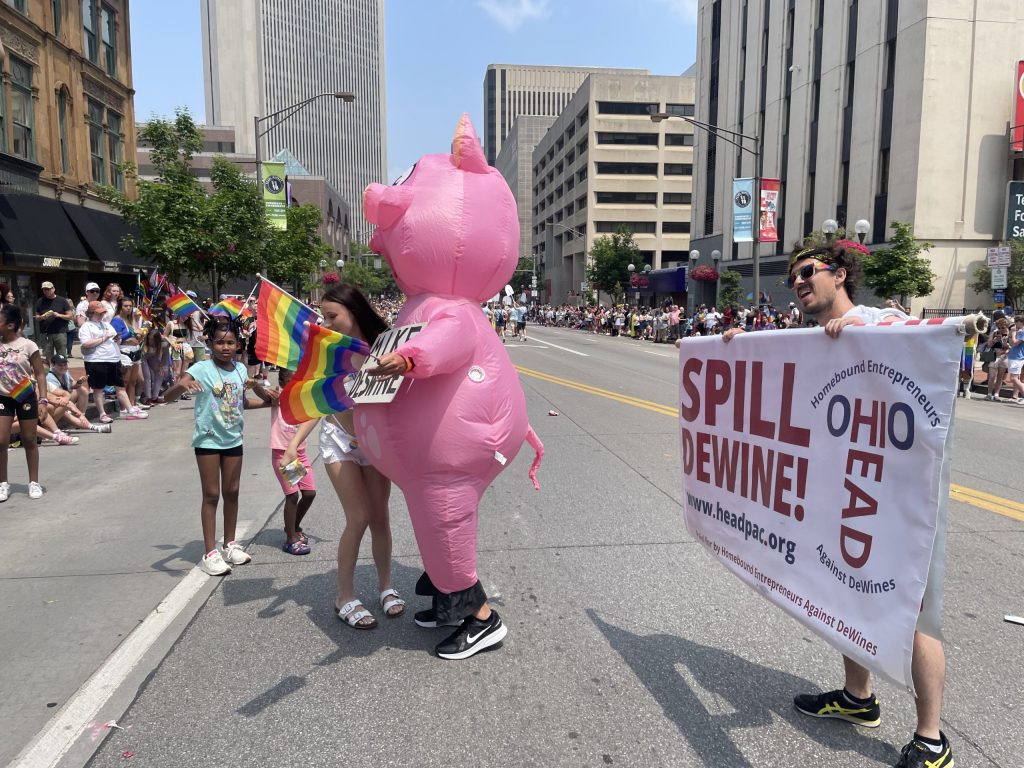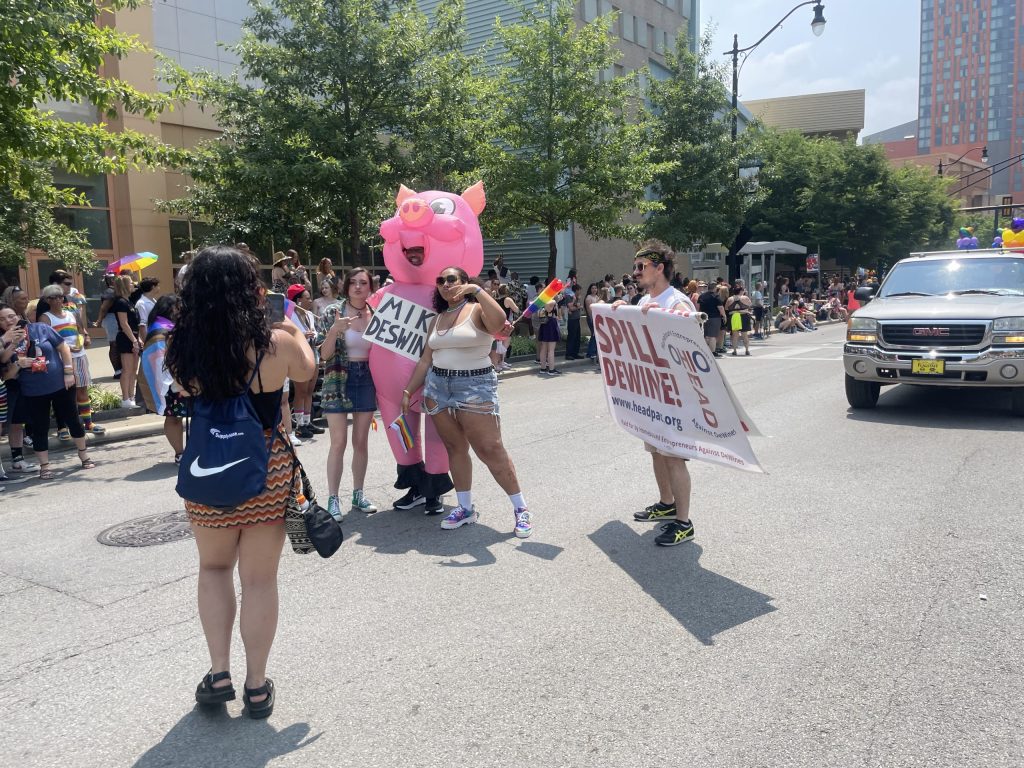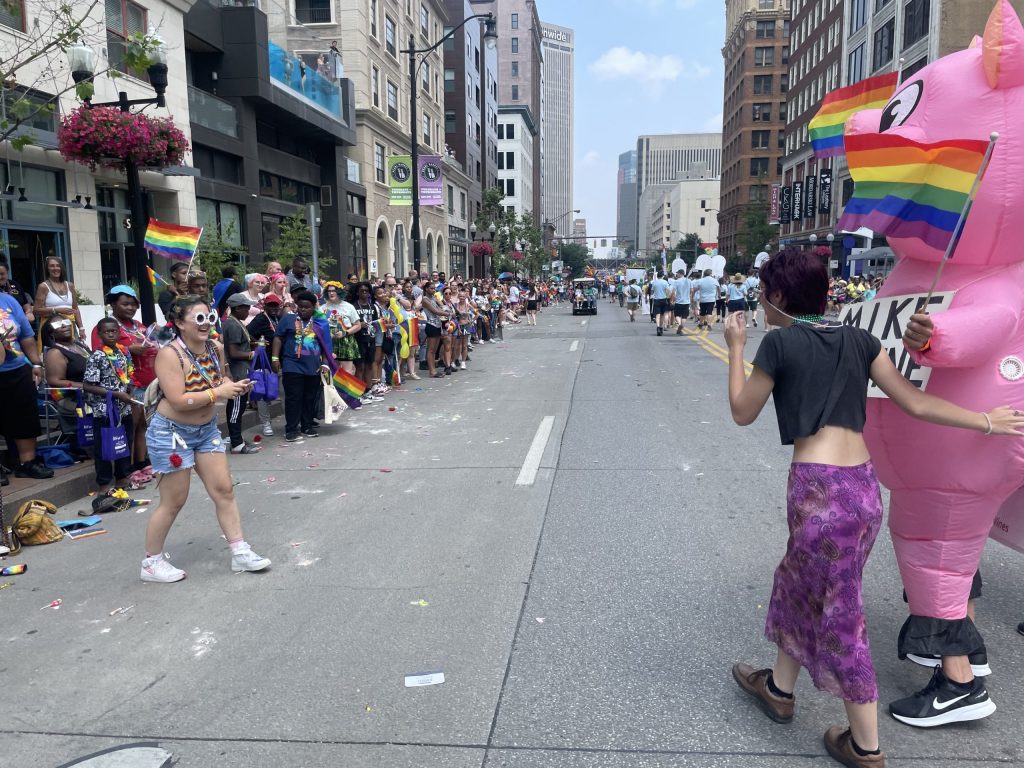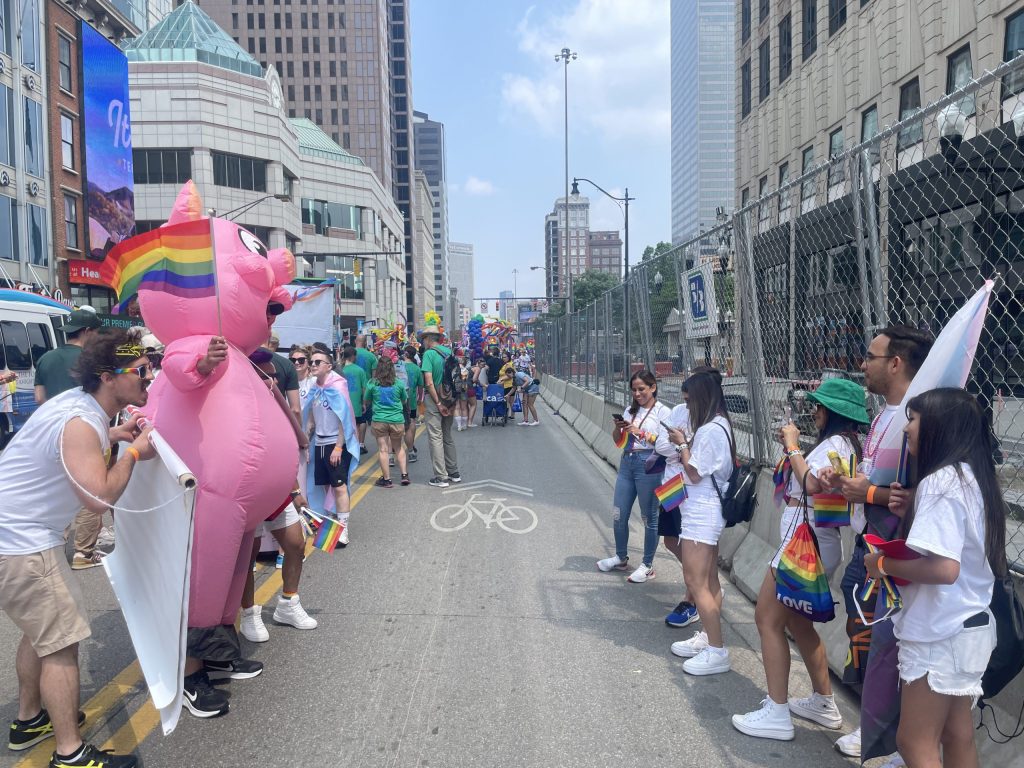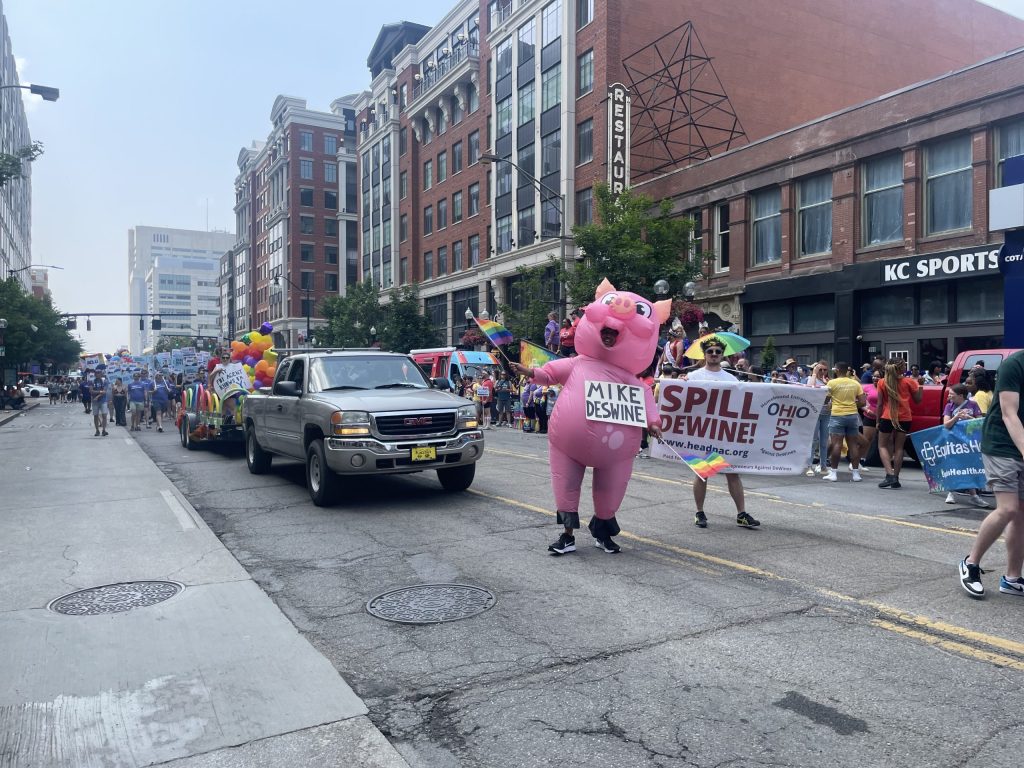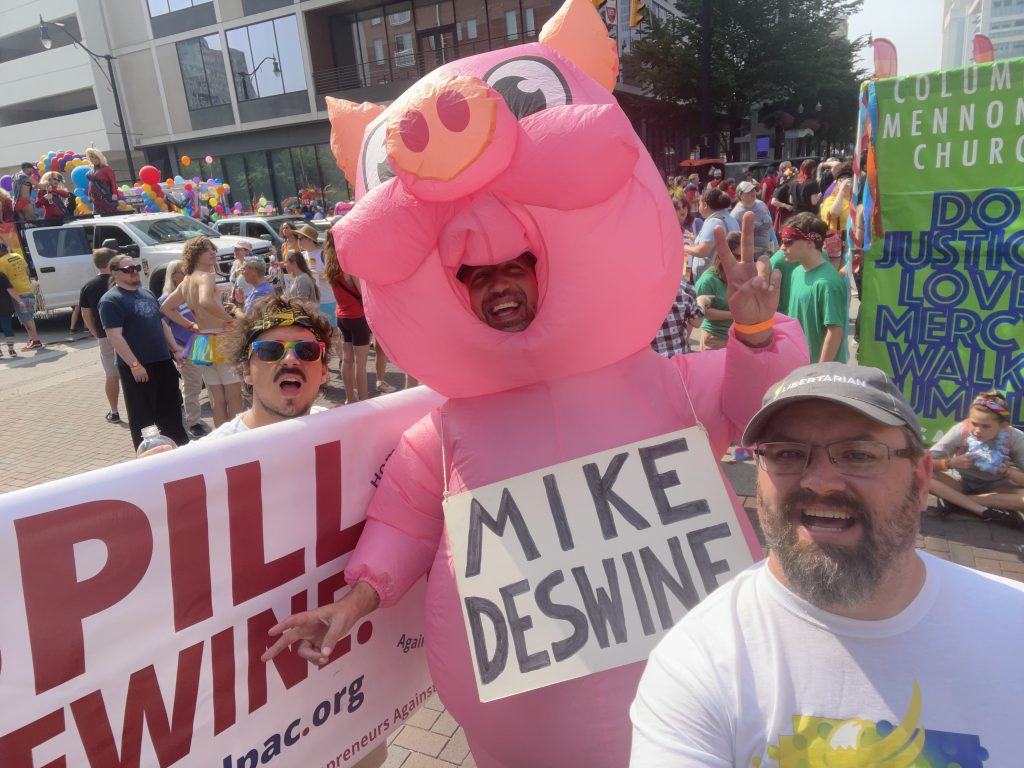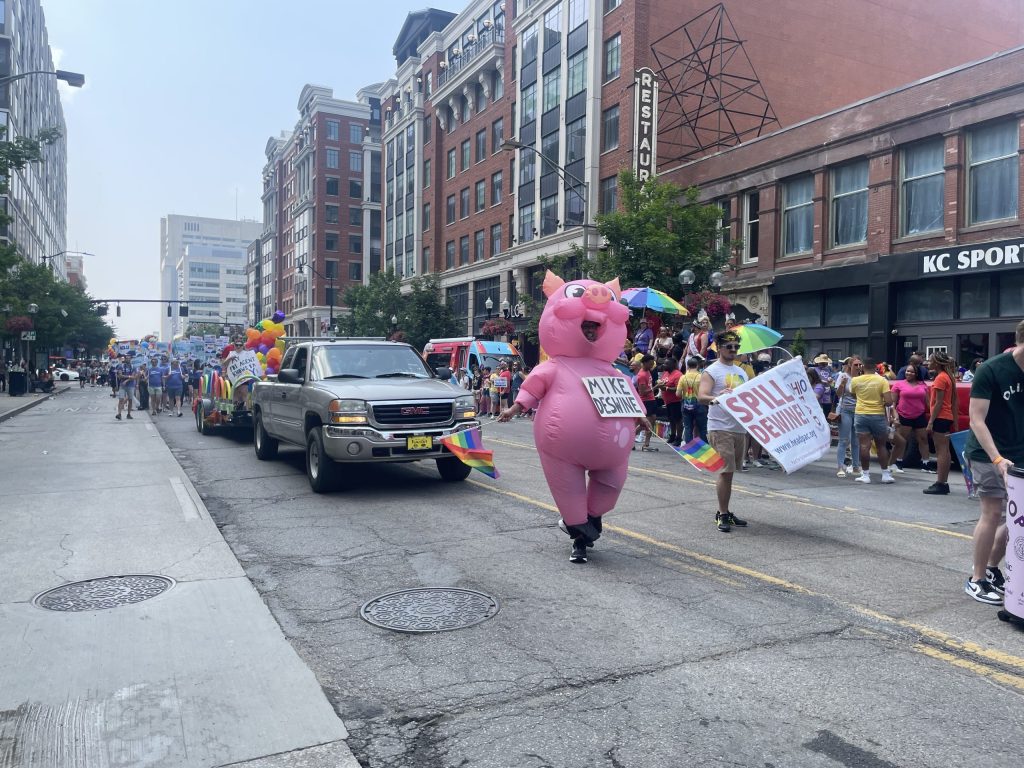2023 August Special
August 8, 2023
Registered Voters – Total -> 874,980
Ballots Cast – Total -> 334,864
Voter Turnout – Total -> 38.27%
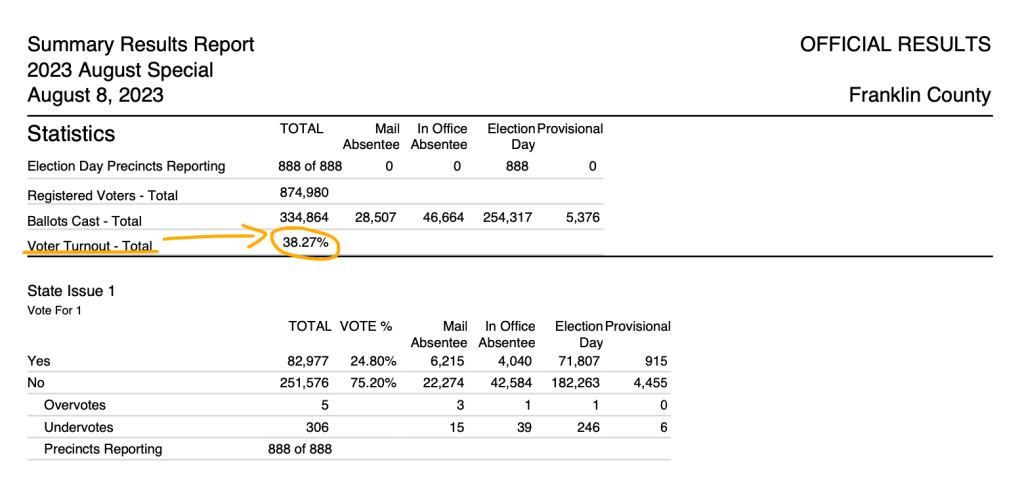
2023 August Special
August 8, 2023
Registered Voters – Total -> 874,980
Ballots Cast – Total -> 334,864
Voter Turnout – Total -> 38.27%

Lori M. Tyack – CLERK OF THE FRANKLIN COUNTY MUNICIPAL COURT
Ben Kessler – CITY OF BEXLEY MAYOR BEXLEY
Greta Kearns – CITY OF GRANDVIEW HEIGHTS MAYOR GRANDVIEW HEIGHTS
Lance M. Westcamp – CITY OF GROVEPORT MAYOR GROVEPORT
Sloan Spalding – CITY OF NEW ALBANY MAYOR NEW ALBANY
Chris Shook – CITY OF REYNOLDSBURG ATTORNEY REYNOLDSBURG
Joe Begeny – CITY OF REYNOLDSBURG MAYOR REYNOLDSBURG
Brad Nicodemus – CITY OF WHITEHALL ATTORNEY WHITEHALL
Michael T. Bivens – CITY OF WHITEHALL MAYOR WHITEHALL
Shaquille Alexander – CITY OF WHITEHALL TREASURER WHITEHALL
John Mathys – VILLAGE OF BRICE MAYOR BRICE
Brannon Dawson – VILLAGE OF HARRISBURG MAYOR HARRISBURG
Christie Ward – VILLAGE OF LOCKBOURNE MAYOR LOCKBOURNE
Matthew P. Cincione – VILLAGE OF MARBLE CLIFF MAYOR MARBLE CLIFF
Daniel Schlichting – VILLAGE OF RIVERLEA MAYOR RIVERLEA
Christopher Lopez – ESC of Central Ohio (Franklin Subdistrict)
Walley Obert – HAMILTON LSD BOARD MEMBER Hamilton Local
Becky Kent – BROWN TOWNSHIP FISCAL OFFICER Brown Township
Deborah Steele – CLINTON TOWNSHIP FISCAL OFFICER Clinton Township
Linzie Justus – FRANKLIN TOWNSHIP FISCAL OFFICER Franklin Township
Lisa E. Shirkey – HAMILTON TOWNSHIP FISCAL OFFICER Hamilton Township
Ron Grossman – JACKSON TOWNSHIP FISCAL OFFICER Jackson Township
Ronald A. McClure – JACKSON TOWNSHIP TRUSTEE Jackson Township
Ken Jones – JEFFERSON TOWNSHIP FISCAL OFFICER Jefferson Township
Laurie Vermeer – MADISON TOWNSHIP FISCAL OFFICER Madison Township
Nancy M. White – MIFFLIN TOWNSHIP FISCAL OFFICER Mifflin Township
Richard J. Angelou – MIFFLIN TOWNSHIP TRUSTEE Mifflin Township
Michele M. Elliott – PERRY TOWNSHIP FISCAL OFFICER Perry Township
Chet J. Chaney – PERRY TOWNSHIP TRUSTEE Perry Township
Eugene Zappitelli – PLAIN TOWNSHIP FISCAL OFFICER Plain Township
Jill Beckett‐Hill – PLAIN TOWNSHIP TRUSTEE Plain Township
Paula J. Wilkins – PLEASANT TOWNSHIP FISCAL OFFICER Pleasant Township
Edward Sheets – PLEASANT TOWNSHIP TRUSTEE Pleasant Township
Michael D. Farley – SHARON TOWNSHIP FISCAL OFFICER Sharon Township
Tony Palmer – SHARON TOWNSHIP TRUSTEE Sharon Township
Natalie West‐Nicodemus – TRURO TOWNSHIP FISCAL OFFICER Truro Township
There are several reasons why a candidate may be unopposed.
The most common is that no one else files to run. 🤷♀️
Proposed law will ensure medical freedom and discourage interference in the doctor-patient relationship.
*** FOR IMMEDIATE RELEASE ***
Columbus, OH: The Franklin County Libertarian Party, a county affiliate of the Libertarian Party of Ohio, announced that the Executive Committee has endorsed House Bill 73, “Enact Dave and Angie Patient and Health Provider Protection Act” sponsored by Representative Jennifer Gross and Representative Mike Loychik.
While it is concerning that such a law would even be needed, the clear interference from federal and state authorities, illegal pressure placed on pharmacists and social stigma invented around safe and effective medicines has found such urgency.
As passed by the Ohio Assembly the new law would place appropriate restrictions on the reach and influence of state government authorities and protect health providers ability to prescribe on/off label medication and protects their free medical speech without fear of retribution. Further, provide protection for pharmacy/pharmacists’ ability to fill a prescription without fear of retribution and a patient’s right to access treatment.
Additionally, the new law would protect a patient from being withheld nutrition or their prescribed daily medications while hospitalized because they decline to consent to a protocol treatment.
While this state law is very similar to federal statute already in place, our shared experience through the past several years, abuses from health authorities and clear violations of civil liberties without consequence, reinforcement of these basic protections seem prudent.
House Bill 73 has been passed by the Ohio House of Representatives and is waiting to be addressed by the Ohio Senate.
We strongly encourage our state senators to pick up this urgent legislation and move forward to provide all Ohioans the certainty they deserve in the chain of trust from their physician to their pharmacist and home to be well.
About Franklin County Libertarians: The Franklin County Libertarian Party of Ohio is a county political party and affiliate of the Libertarian Party of Ohio. FCLPO has monthly business meetings of the Executive Committee every third Tuesday at 7pm, at the LPO Office, 6230 Busch Blvd, Suite 102, Columbus. Monthly socials are also hosted at various restaurants and venues across and around Franklin County on dates that are announced through the website, fclpo.org, monthly newsletter and Facebook page.
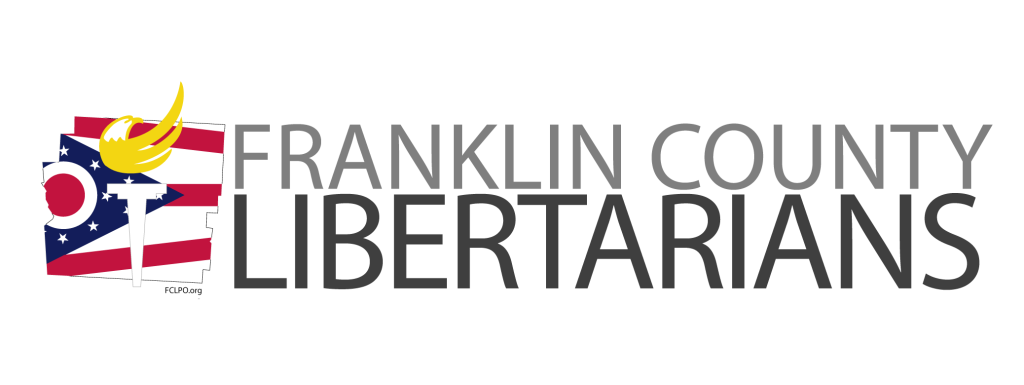
MEDIA RELEASE
The Franklin County chapter of the Libertarian Party of Ohio adopted a resolution of support for The Gahanna Foundation’s “Democracy Challenge 2023” public awareness campaign designed to boost registered voters and election participation in 15 cities in Franklin County.
Adopted unanimously on July 31, 2023 by the Franklin County Libertarian Party of Ohio, the resolution states:
“WHEREAS the right to vote is fundamental to our American Republic, and;
WHEREAS voter participation is essential for the fair and representative functioning of American government at all levels;
BE IT RESOLVED that the Franklin County Libertarian Party of Ohio recognizes the importance of voting in the preservation and strengthening of our constitutional republic, and commit to exercising our right to vote in all appropriate elections.
BE IT FURTHER RESOLVED that we encoruage all eligible citizens to register to vote, educate themselves on the issue and candidate, and make their voices heard at the polls at each election,
BE IT FINALLY RESOLVED that we support effort to make voting more accessible.”
Gahanna Foundation President John Michael Spinelli (TGF) said the endorsement from Ohio’s third largest political party is not political or partisan in any way, but a solid vote for the new and novel comprehensive, 3-year pilot campaign that plans its kick-off this year in Franklin County.
Mr. Sweeney added, “The Democracy Challenge has a strong approach to encouraging Ohio voters to get involved. Using real numbers, sourced from the Board of Election gives everyone a chance to check where their communities stand and now a framework to improve.”
Spinelli notes that while “Americans have the right to vote, tens of millions chose not to exercise their hard-fought franchise to make their voices heard at all elections, from primary to special to General,” TGF hopes to expand “DC23” to more Ohio counties next year and sees a national future for it, too.
The Gahanna Foundation plans for a Statehouse media even to officially kick-off “DC23” in advance of the General Election on November 7th.
For more information on “Democracy Challenge 2023,” please visit www.thegahannafoundation.org

FTA/ In addition to pro-Issue 1 campaign events, LaRose challenged his opponents in the Republican race for U.S. Senate next year to donate to the campaign. LaRose called for Sen. Matt Dolan (R-Chagrin Falls) and Northeast Ohio car dealer Bernie Moreno to pony up $1 million each to the fight for Issue 1. Moreno’s campaign said he’s already given six figures to the campaign and offered to match LaRose’s donations dollar-for-dollar. LaRose’s campaign responded by saying he is not as wealthy as his opponents and has put “sweat equity” into the campaign by appearing at more than 60 pro-Issue 1 events. /
From The Article: https://woub.org/2023/08/02/libertarian-party-of-ohio-secretary-of-states-pro-issue-1-stance-violates-hatch-act/
As many have observed this is a speech issue.
And here is the thing, the Ohio and US Constitutions place restrictions on _govt_ regarding speech, not residents.
Frank LaRose is the Ohio Secretary of State. There are issues regarding the upcoming elections where Frank’s opinion has the force of law. Whether it’s spoken to staff, written in a memo to county Boards of Election, or posted to Twitter, his statements influence the levers of power he controls.
There is not a magic hat that Frank can take off that stops him from being the Ohio Secretary of State. He raised money from donors, ran for public office, gained a majority of votes for that election and swore an oath to uphold and defend the Ohio Constitution. This should not be a surprise to Frank.
Frank is literally Mr. Govt.
In the privacy of his home, or at private events, Frank is a private resident with freedom of speech.
In public, anywhere in public, even Twitter, and not just at his desk at 180 E Broad St, Frank is the Ohio Secretary of State, a walking extension of govt and he must abide by the restrictions that we have placed on govt, and, in some cases, he helped become law.
When Frank is campaigning for himself, to get elected to another office, he can say whatever he wants about himself, or his opponents. All other issues on a ballot are off the speaking list.
We didn’t make these rules, and we often opposed them when they were created, but Frank is no hero to break this rule, no modern scofflaw or dark knight.
He comes across as just another corrupt politician showing us in public how they really act in private.
From The Article: https://woub.org/2023/08/02/libertarian-party-of-ohio-secretary-of-states-pro-issue-1-stance-violates-hatch-act/


Since 2013, Ohio Libertarians Have Known All Too Well That “Two Faced Frank” Will Do Whatever It Takes to Get Ahead
– FOR IMMEDIATE RELEASE –
COLUMBUS, OHIO –– August 1, 2023 –– As the unprecedented, unnecessary and expensive special election approaches on August 8, the Libertarian Party of Ohio (LPO) still stands with over 200 other organizations against Issue 1. But now the LPO is taking things further by filing a complaint against one of Issue 1’s biggest proponents, Ohio Secretary of State Frank LaRose.
On Monday, the LPO filed a formal complaint with the U.S. Office of Special Counsel, saying that LaRose violated the federal Hatch Act as a public official by receiving federal funds for elections, while also using his office to affect an election. LaRose first earned the LPO’s scorn by voting for SB 193 when he was a state senator in 2013, which gutted minor parties’ ballot access.
“It’s clear that LaRose’s use of federal funds for elections and his support of Issue 1 place him in direct violation of the Hatch Act,” said notable ballot access attorney Mark Brown, who filed the complaint on behalf of the LPO. “By supporting Issue 1 as Ohio’s Secretary of State, his official actions will affect the result of an Ohio election and are not protected by the First Amendment.”
“For someone who is using Issue 1 to campaign for federal office, LaRose should probably be more familiar with federal laws while administering federal funds,” said LPO Communications Director and former Libertarian candidate for governor in 2018 Travis Irvine. “Libertarians have known all too well since 2013 that ‘Two Faced Frank’ will do whatever it takes to get ahead.”
More info about the LPO can be found on their website, or follow them on Twitter or Facebook.
Learn more at: https://lpo.org
###
The Franklin County Libertarian Party of Ohio Executive Committee voted to approve joining this complaint and fully support this action.
In this third installment, I intend to come to a close with commentary on the East Palestine train derailment and put it in context with some of the larger issues American society is dealing with today. It is not without a sense of irony that I chose the title for this three-part series. Train Wreck is an apt description for many different industries and institutions in our country.
By way of review of the East Palestine incident, let me first state what I think can reasonably be considered as facts. First of all, there seems to be no dispute that the original derailment was caused by a broken axle or wheel bearing failure as evidenced from fire seen from video footage recorded by a doorbell camera on a home about a mile and a half ahead of the derailment. Secondly, some expert opinion suggests that the hazardous material clean up could have been handled differently, and better. Third, this is no time to be complacent about railroad safety in general. Statistically, it is not getting better. Among other things, the number of derailments is unacceptably high.
The problems in the US railroad industry are not confined to safety. To most people, US railroads seem stuck in the past. The rest of the world seems to have no problem providing high speed passenger rail service. While other nations are getting more service from its railroads, we are getting less. As stated in the previous columns, American railroads are eliminating track, not building more except in extremely rare instances.
The railroad industry is not alone.
The American steamship industry is an industry that has suffered a permanent decline from 50 years ago. There are less than 200 U.S. flag merchant ships out of the roughly 40,000 that serve the U.S. every year. Most of these are operation within U.S. territory. The shipyards that build merchant ships are all in other countries. Some of these problems are self-inflicted. Our maritime law has been outdated for generations, but Congress has been unable to act.
While the safety record of regulated passenger airlines has not deteriorated, there are signs of cracks in the foundation of our air transport system: flight delays, cancellations, and near misses on runways. The underlying cause appears to be a shortage of pilots and air traffic controllers. The other often overlooked problem is regulatory inefficiency and capture. The FAA has drug its feet on ADS-B, on a Remote Tower Pilot Program that is well advanced in Europe, the NOTAM infrastructure, and reform of the Passenger Facility Charge. The money is available, but it is often awarded to contractors who want to build the old technology which is currently profitable instead of systems that will take us into the future. Many of these programs have been pushed in Congress since the Clinton Presidency.
Our national highway system is straining under the weight of a growing, more mobile population. Most Americans are familiar with stories of bridges collapsing. New, more stringent hours of service regulations have been imposed on truck drivers while rest areas have become overcrowded leaving them with no place to get the required sleep. Even water mains and natural gas pipelines are underbuilt and deteriorating.
There is no question that misallocation of resources is a major factor in this disfunction. The Congressional infrastructure bill was more of the same problem that has occurred for decades. We get less with more. Originally, replacing the Brent Spence bridge over the Ohio River was supposed to cost 1.2 billion dollars. Under the infrastructure bill it came in at 1.7 billion. An extra $5 billion is a lot of money.
Complex systems are fragile. Our transportation system and infrastructure, even our whole economy that is based on purchasing goods manufactured overseas and being delivered to the door, is a very complex system. Once one piece breaks down, the rest quickly falls apart.
Do we have the intellectual capital in this country capable of running these complex systems? I was speaking to some relatives on my wife’s side of the family this week. The oldest daughter, going to be a junior in high school, is getting multiple letters from colleges because of her 4.3 grade point average and high early SAT score. She is also a fantastic athlete, but the rules don’t allow athletic departments to recruit her just yet. She told me, “I don’t read books”. Now, I understand, she and her parents are incredibly busy between attending school and her athletic pursuits, but I had to ask. How do you get such a high-grade point without reading books? The answer, of course, was the internet. It makes me wonder though. Do the teachers still read books, or is all their teaching from the internet or tik-tok?
Do corporations have high standards anymore? Diversity, equity and inclusion, DEI, is not just a talking point on social media. It is real. I have read dozens of annual reports from corporations that have sections devoted to DEI. On the surface, DEI seems aimed at laudable goals, but as an alternative value system to measure corporate success, they fall short. Understandably, merit itself can be subjective. For the college educated entering the work for the first time, who determines what is the right college? Is the grade point average really the best indicator of future success? DEI is even more subjective, and any measurement of DEI doesn’t necessarily correlate to the commercial success of a business. In many corporations DEI has become an end to itself and on that basis, the corporation deserves to fail. Has the movement for DEI gone too far in replacing corporate goals that have real social utility with goals that encourage employees concern with their own self-interest and not the interest of the company which pays their salary? Ultimately, the success of the company is measured by its success with its customers. Have we forgotten how to measure true merit within a company and in society at large? Which approach does a better job encouraging customer satisfaction? How can DEI better perform the function of success than financial measurements of income growth and profitability?
What about greed? Certainly, it’s across all levels of society. Corporations have merged, consolidating industries to the point that no competitive alternatives exist. Greed exists in government, which will soon manifest in a push for increased taxation, but currently is showing itself by the creation of money out of thin air, which is driving costs up across the board, not to mention the entities with their hand out for more and more money, such as universities, defense industries and the medical establishment. The more subsidies they get, the more they raise their prices. Greed manifests itself in government when bills are passed to spend more money on projects than is needed, not just enhance a project beyond simple utility, but to reward friends, donors and families of politicians. Greed manifests itself in corporations when they destroy their competition, and then oppress their customers and employees with high prices and poor service when they have no place left to turn. We have to understand that our country depends on its railroad system for its prosperity and even survival. If it becomes clear that Vanguard and Blackrock are destroying the infrastructure of the railroads they own for short term profit as opposed to long term viability, does the government step in?
I am a minimalist Libertarian. George Washington said, “Government is not reason; it is not eloquence. It is force. And force, like fire, is a dangerous servant and a fearful master.” It is clear from other writings that Washington thought government was necessary, but it also seems abundantly clear that he would prefer the least government possible, and that he would have agreed with Thomas Paine, who wrote, “Government, even in its best state, is but a necessary evil; in its worst state, an intolerable one.”. What is the least government possible? It depends on the citizens. We are at a time when we have to answer a question that America has had to answer numerous times throughout its history. Can we govern ourselves? Let’s hope we will be able to prove that we can, once again. To do so will require the highest level of commitment and competence from its citizens.
John Stewart – At-Large Member, FCLP

Issue 1 is a bad amendment that would make bad law.If the Ohio Assembly was actually concerned about “protecting” the Ohio Constitution from “out-of-state” interests they would increase the threshold for their own favored amendments, not just citizen initiatives.
Demand more than “good intentions”, demand good outcomes.
Learn more: Ohio Issue 1, 60% Vote Requirement to Approve Constitutional Amendments Measure (2023) https://ballotpedia.org/Ohio_Issue_1,_60%25_Vote_Requirement_to_Approve_Constitutional_Amendments_Measure_(2023)
Correction: The proposed amendment will require that any proposed amendment to the Constitution of the State of Ohio receive the approval of at least 60 percent of eligible voters voting on the proposed amendment. (Emphasis ours.) https://www.ohiosos.gov/globalassets/ballotboard/2023/certified-ballot-language-for-issue-1.pdf

Thanks to everyone who supported Homebound Entrepreneurs Against DeWines in yesterday’s Doo Dah Parade!! As long as Mike DeWine is in office we’ll always be down to #SpillDeWine 🍷 🐷 🇺🇸
